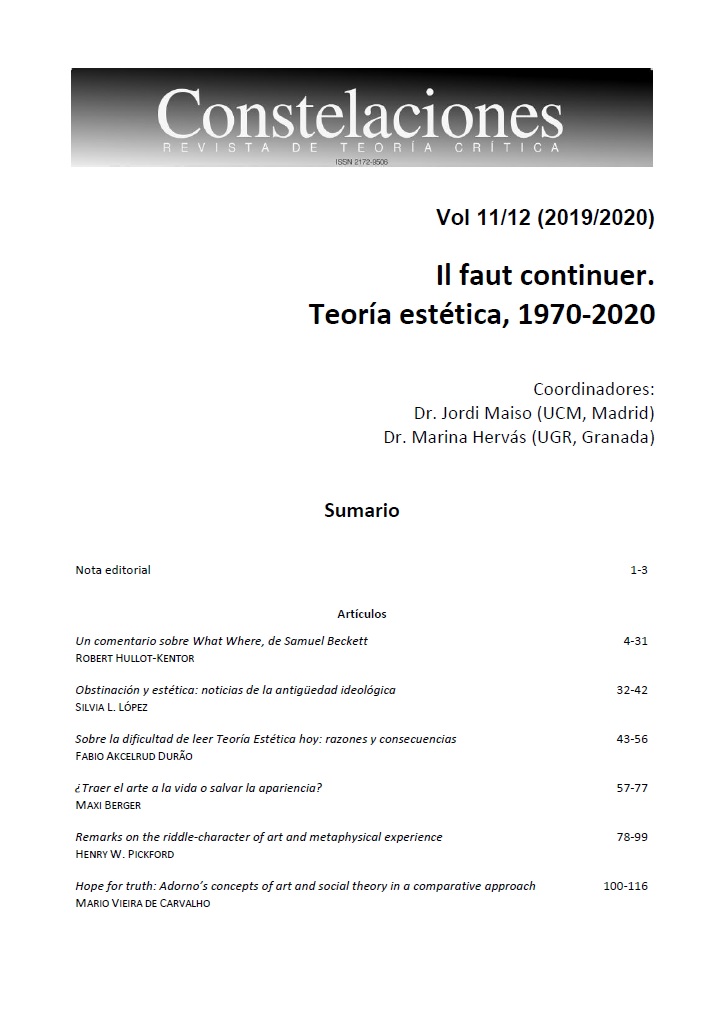Priority of the Material: Some Remarks for an Aesthetic Theory of the Negative Dialectics
Keywords:
Aesthetic theory, material, materialism, music, negative dialecticsAbstract
Adorno's materialist thesis of the primacy of the object, the core idea of his Negative Dialectic, returns in transformed form to his aesthetic concerns and theory. Such materialist aesthetics is compelled to permanent intermittency: It must penetrate artistic objects, absorb something of them, if the talk of the inexchangeability of art is to be more than a hollow statement. In this respect, the primacy of the object in aesthetic terms also means a primacy of artworks over aesthetic theory. Materialist aesthetics according to Adorno must therefore start from the artistic objects and return to them again and again, instead of moving away from them on increasingly hyper-abstract levels of discourse and meta-reflection. It is true that what is communicated in the material enters the realm of conceptual reflection, of reflection through reason. But this does not mean that philosophy can take precedence over aesthetic practice. In contrast, only that which is already laid out in the sensual itself can lead to aesthetic reflection.
Downloads
Downloads
Published
How to Cite
Issue
Section
License
Copyright (c) 2020 Martin Mettin

This work is licensed under a Creative Commons Attribution-NonCommercial-ShareAlike 4.0 International License.
Authors who have publications with this journal accept the following terms:
1. Authors will retain their copyright and grant the journal the right of first publication of their work, which will be simultaneously subject to the License of recognition of Creative Commons CC BY-NC-SA 4.0 that allows third parties to share, redistribute and adapt the work provided it is for non-commercial purposes and its author and first publication in this journal is indicated.
2. Authors may adopt other non-exclusive distribution license agreements for the version of the published work (e.g., depositing it in an institutional electronic archive or publishing it in a monographic volume) provided that the initial publication in this journal is indicated.
3. Authors are permitted and encouraged to disseminate their work via the Internet (e.g., in institutional telematic archives or on their website) before and during the submission process, which can produce interesting exchanges and increase citations of the published work. (See The Effect of Open Access).
Data confidentiality
1. Constelaciones. Revista de Teoría Crítica guarantees that the data you send us will only be used to meet the requests made in this message.
2. Your data will not be passed on to third parties.
3. You may request that your data be removed from our records at any time.





